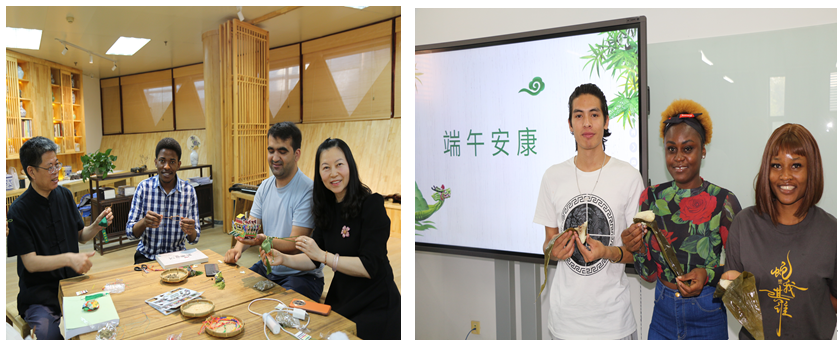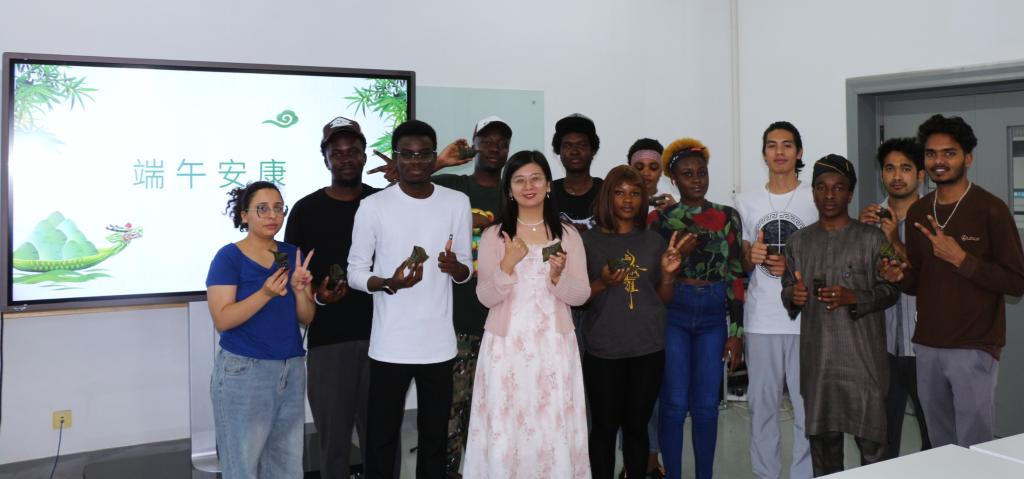“May 5, Dragon Boat Festival, eat zongzi, remember the deceased.” On the occasion of the Dragon Boat Festival, a traditional Chinese festival, the School of International Education (SIE) held a cultural experience activity “Zongzi Flavor, Intense Atmosphere of Dragon Boat Festival” on May 27th, in which more than 20 international students from Nigeria, Nepal and other countries immersed themselves in experience of making scented sachets, weaving colorful ropes and wrapping zongzi, and explored the cultural code of the Dragon Boat Festival.
At the activity site, Chinese language teachers systematically introduced the origin, core customs and cultural connotations of the Dragon Boat Festival through short videos, picture displays and interesting quizzes. One by one, the international students felt the profoundness of Chinese traditional culture through the folk stories of “giving blessings”, wrapping zongzi, making scented sachets and “stabbing the five poisons” at the Dragon Boat Festival.
The international students not only made wormwood scented sachets with their own hands, transforming cultural memories into touchable artworks, but also tasted the sweet zongzi, deepening their understanding of traditional Chinese culture and savoring the strong “Chinese flavor” in the mode of “hands-on + brains-on” experience. The experience mode of “hands-on + minds-on” deepened the understanding of traditional Chinese culture and tasted the strong “Chinese flavor”.

Samir from Nepal said, “I am very happy to participate in this cultural experience activity, wrapping zongzi, making scented sachets and weaving colorful ropes are particularly interesting, I feel the vitality and charm of traditional Chinese culture.

This Dragon Boat Festival cultural experience activity provides an opportunity for international students to further understand Chinese traditional culture. In the next step, through immersive cultural experience and cross-cultural exchanges, SIE will take various measures to let international students experience the profound heritage of Chinese culture in practice, to be more aware of China, to be more friendly to China and to love China, and to help tell the story of the University, the story of Tianjin and the story of “China”.